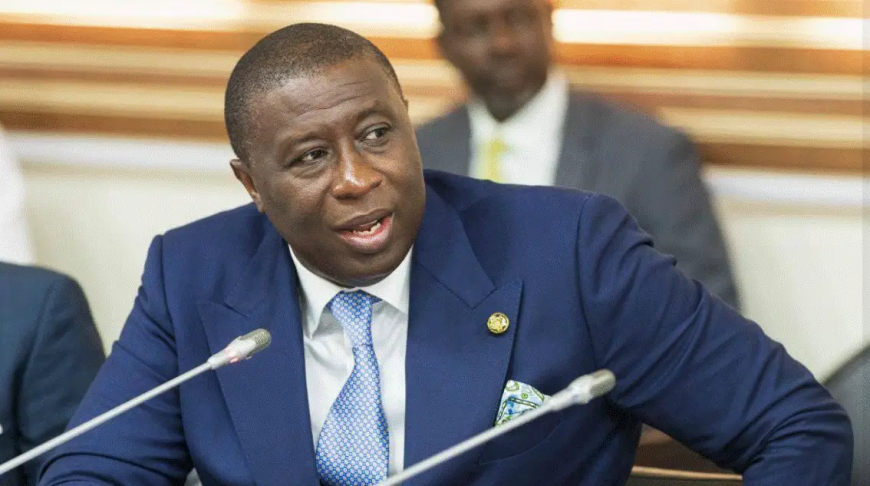⛽ Israel–Iran War: Ghana at Risk as Net Fuel Importer – Patrick Boamah
Accra, Ghana – June 2025 – Patrick Yaw Boamah, former Chairman of Parliament’s Finance Committee and current MP for Okaikwei Central, has cautioned that Ghana faces serious economic vulnerability due to its status as a net importer of refined petroleum. The escalating Israel–Iran conflict, he asserts, could significantly drive up global fuel prices—with dire consequences for Ghana’s economy.

Accra, Ghana – June 2025 – Patrick Yaw Boamah, former Chairman of Parliament’s Finance Committee and current MP for Okaikwei Central, has cautioned that Ghana faces serious economic vulnerability due to its status as a net importer of refined petroleum. The escalating Israel–Iran conflict, he asserts, could significantly drive up global fuel prices—with dire consequences for Ghana’s economy.
???? Geopolitical Pressure and Fuel Price Surge
Global tensions—particularly in the Middle East—have historically disrupted fuel markets, pushing prices higher. Similar patterns during past conflicts, such as the Israel–Hamas–Hezbollah tensions in late 2024 and early 2025, led to notable fuel price hikes in Ghana
Ghana imports nearly 90% of its refined fuel, primarily through Tema and Takoradi ports — a dependency that leaves it especially exposed to geopolitical shocks .
???? Boamah’s Concerns & Economic Impact
-
High global crude prices: With Brent crude recently hovering around $117–$119/barrel, Patrick Boamah warned that removing fuel taxes is infeasible, despite public pressure, since global prices remain exceptionally high
-
Risk of further hikes: An expansion of the Israel–Iran war could disrupt vital shipping routes and refine production, triggering additional increases in Ghana’s pump prices
???? Why It Matters for Ghana
-
Cost of living surge: Fuel price rises ripple through transport, agriculture, and the cost of goods, increasing inflationary pressures .
-
Pressure on forex reserves: Higher import bills for refined fuel strain Ghana’s foreign exchange reserves, compounding cedi depreciation.
-
Limited domestic refinement capacity: Despite being a crude oil producer, Ghana relies heavily on imports due to insufficient domestic refining—heightening its vulnerability
????️ Potential Strategies for Resilience
-
Diversify energy sources: Boosting renewable energy and reviving domestic refining capacity would reduce import dependence.
-
Hedging strategies: Implementing fuel price hedging, strategic petroleum reserves, or subsidy mechanisms could cushion future shocks.
-
Policy reinforcement: Sustainable tax and subsidy policies must anticipate external volatility, balancing consumer relief with fiscal stability.
✔️ In Summary
Patrick Boamah’s warning is a timely reminder: Ghana’s heavy reliance on imported fuel exposes its economy to global shockwaves. The deepening Israel–Iran conflict risks inflating domestic fuel costs, potentially triggering broader inflation and forex crises. Strengthening energy resilience and diversification is now imperative.
What's Your Reaction?




















































































